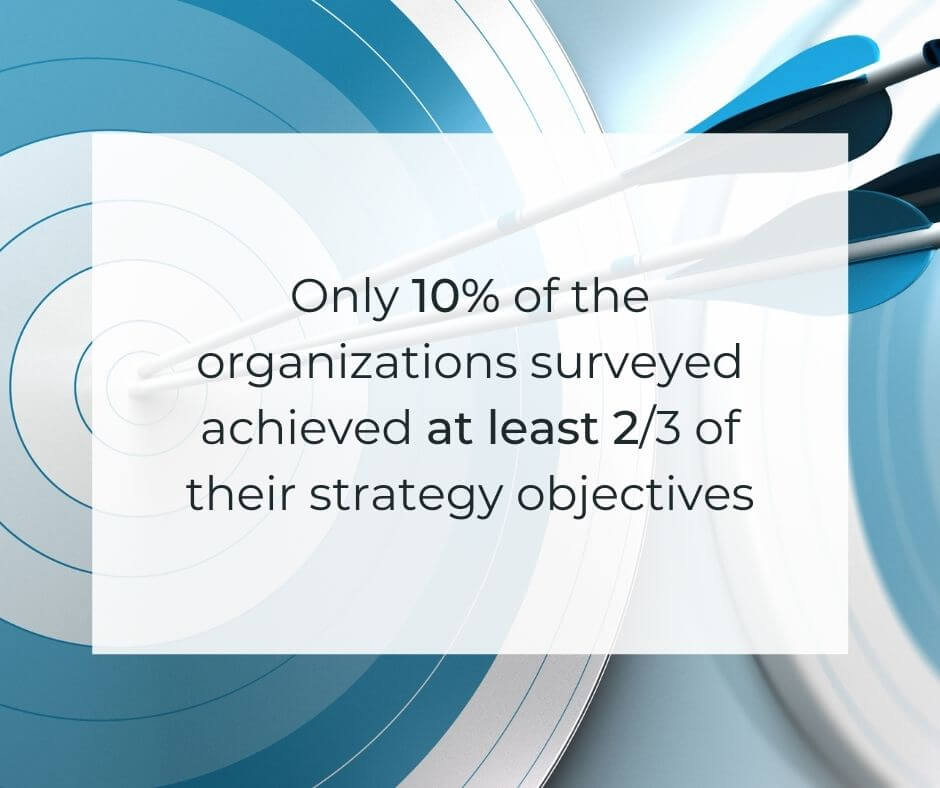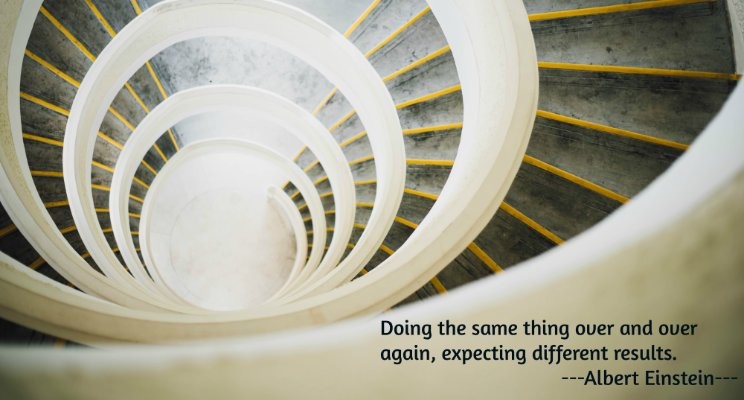What do strategic planning and meal planning have in common? A lot, actually.
Here’s a common scenario at my house. Around 8:00 am, I’ll ask the members of my family what they’d like for dinner. A typical response sounds like this: “It’s way too early to be thinking about it.” When midday rolls around, my question takes on some additional urgency. After all, I still need to buy ingredients. Someone will reply, “I just finished lunch; I can’t think about dinner yet!” At 3:00 pm, someone will pop into my office or send me a text: “Hey, Mom; what’s for dinner?” Once we finally decide on chicken, there’s a mad scramble to get to the store, cook the meal, and coordinate who’s eating and when because of course we have lots of other priorities.
The same scenario happens in companies. According to a survey, only 68% of leaders believe their organization is good at developing strategy. Further, only 10% of the organizations surveyed achieved at least two-thirds of their strategy objectives, with 36% achieving between 50%-67% and 54% achieving less than 50%.

Though intentions are great, action lags. During the first quarter, everyone’s thinking about planning. By the second quarter, there are some good ideas dictated by the market. Finally, someone asks, “Hey, what are our yearly sales goals?” This question is often followed by a mad scramble to develop a plan, plus implementation…but it’s already quarter three.
Strategic planning isn’t optional. As Steve Jobs put it, “Deciding what not to do is as important as deciding what to do.”
Let’s talk about “meal planning” in your organization; more accurately – how should you be addressing strategic planning?
Perceptions Vs. Reality
I often encounter a misconception about strategic planning. There’s a fantasy that in a few short hours or days of work, an exciting plan will emerge like stone tablets from the mountain, followed by flawless execution. The reality is quite a bit grittier. Here are some truths to remember when you’re working to improve strategic planning.
-
A plan is a work in progress.
You’re never really finished planning. Just like the need to create a meal plan exists beyond this week, and the next, and the next, planning is ongoing, and it will change as you go. Keeping things flexible means you can pivot as you determine how successful the plan is.
-
Having a plan doesn’t guarantee success. The act of planning, regularly, does.
When you’ve put a plan into motion, you should be revisiting your goals and determining if changes are needed based on the success criteria. This process of revisit and revision is actually the KEY to a successful strategic plan.
-
No one likes the planning process, but it’s necessary to bring alignment.
What happens when someone in my family expects mac and cheese for dinner, and I’ve actually planned to make a spinach salad? Expectations don’t equal reality, and tension can result! When we prioritize the planning process and make sure it’s communicated clearly, we ensure alignment on vision, approach, resources, and – arguably most important – expectations.
-
People dislike revisiting the planning process even more than the initial process, but perseverance is necessary.
I get it. It’s exhausting. Let’s say I’ve planned a broccoli cheese soup for dinner, but the broccoli has spoiled. When I turn to my family and ask, “What should we make instead?” it’s met with groans. No one wanted to help plan meals the first time around; they certainly don’t want to plan AGAIN. However, it’s imperative to revisit, reassess, and realign as we face unexpected events. Helping your organization understand the importance of ongoing planning is key to help encourage ongoing buy-in.
-
A plan is a “guide,” not a foregone conclusion.
As Winston Churchill said, “Plans are of little importance, but planning is essential.” There may have been a time when we could count on plans we made a year in advance…but two years into COVID, we need to re-assess plans almost daily. When you expect change, and fully anticipate the need to pivot, you’ll be ahead of the curve already.
Expect An Evolving Reality
Lean into the certainty of a future that’s constantly shifting. Expect that your plans will need to be revisited and modified again and again. With a growth mindset, you’ll find yourself a much more prepared cook in the kitchen…and strategic leader in your organization.




